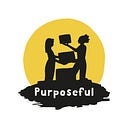Greening Our Local Economy
Reflections from a young woman mentor in Sierra Leone on the impact of climate change on girls’ realities
Climate change has a huge impact. People in the community don’t always call it climate change but they know what it means. They tell us not to sleep too much at night because of the fear of landslides. People are aware that it is as a result of our actions, like removing trees and blocking waterways.
It comes with the loss of property and loss of life — many young children die when there is a natural disaster. Of course, it affects girls differently. If there is a disaster and people need to relocate, this brings issues for girls. They have to move to and adjust to communities that may not be safe and they may experience violence. Also, girls have more empathy so disasters affect them more emotionally. In the home, girls are the ones who do the chores to clean after disasters like flooding. They are also responsible for fetching water and collecting wood. If these resources are not available, girls have to find ways of getting them. Also, when it comes to education — maybe because of the aftermath of a disaster, the parents do not have money to further their education and they end up dropping out.
Girls and young feminists implement strategies to respond to climate change
I first heard about climate change during an event organised by Action Aid in 2021, and later on the Karo Kura Konection radio drama. So, I know that climate change happens because of things humans have done — such as cutting down trees.
Awareness raising and mitigation
I used to be a climate change volunteer in my community for the Office of National Security (ONS). After the mudslide in Freetown in 2017, we formed a small group of three in the community to tell people about climate change and how to prevent it. We also worked with UNOPS to plant trees and raise awareness.
Reducing the environmental impact of waste materials, and generating a collective income.
As a girls’ club we decided to do something sustainable that would also bring us an income, so I did online research and found out about a flower pot tyre project with so many different designs. Now, we go to garages and ask them for the tyres they are not using. We also take tyres from the trash, where they would normally be burnt, as we know that burning tyres is not a good thing — the smell is so very bad and can cause airborne diseases in the community. By doing this, we’re also reducing the waste materials lying around in the community.
We use the refreshment money from our club for individual businesses, and the small profits to buy paint and flowers, and we’ve started designing, using tyres and painting them, then planting flowers inside. We make money by selling to an entertainment company, and we use that money to help solve our problems. We have paid for one of the girls’ school fees, for her to take exams, and we also use the money when girls are sick and need to go to the hospital.
Scaling up
We would like to expand to making seats but we need more money. I am trying to register our group so that we can get funding to do more initiatives — we already have a logo. The group is called Springs of Initiative — there are 15 girls who are members.
Whatever you want to achieve, you can do it - to create impact in your community and country. Fight against climate change.
Girls and young feminists are living with the impacts of climate change every day and intimately understand the risks it poses to their lives but with this understanding, they’re also finding opportunities for themselves, creating businesses using existing resources and, as a result, simultaneously establishing a social safety net for each other and improving their community’s environment.
Theresa Vinie Rogers, 29, is a young women mentor in Purposeful’s Girls Circle Collective programme. She narrated her reflections, while Melvina N’yillah Conton (Programme Officer) supported documentation.
Find out more about the work of Purposeful with girls and young feminists across the world: wearepurposeful.org
